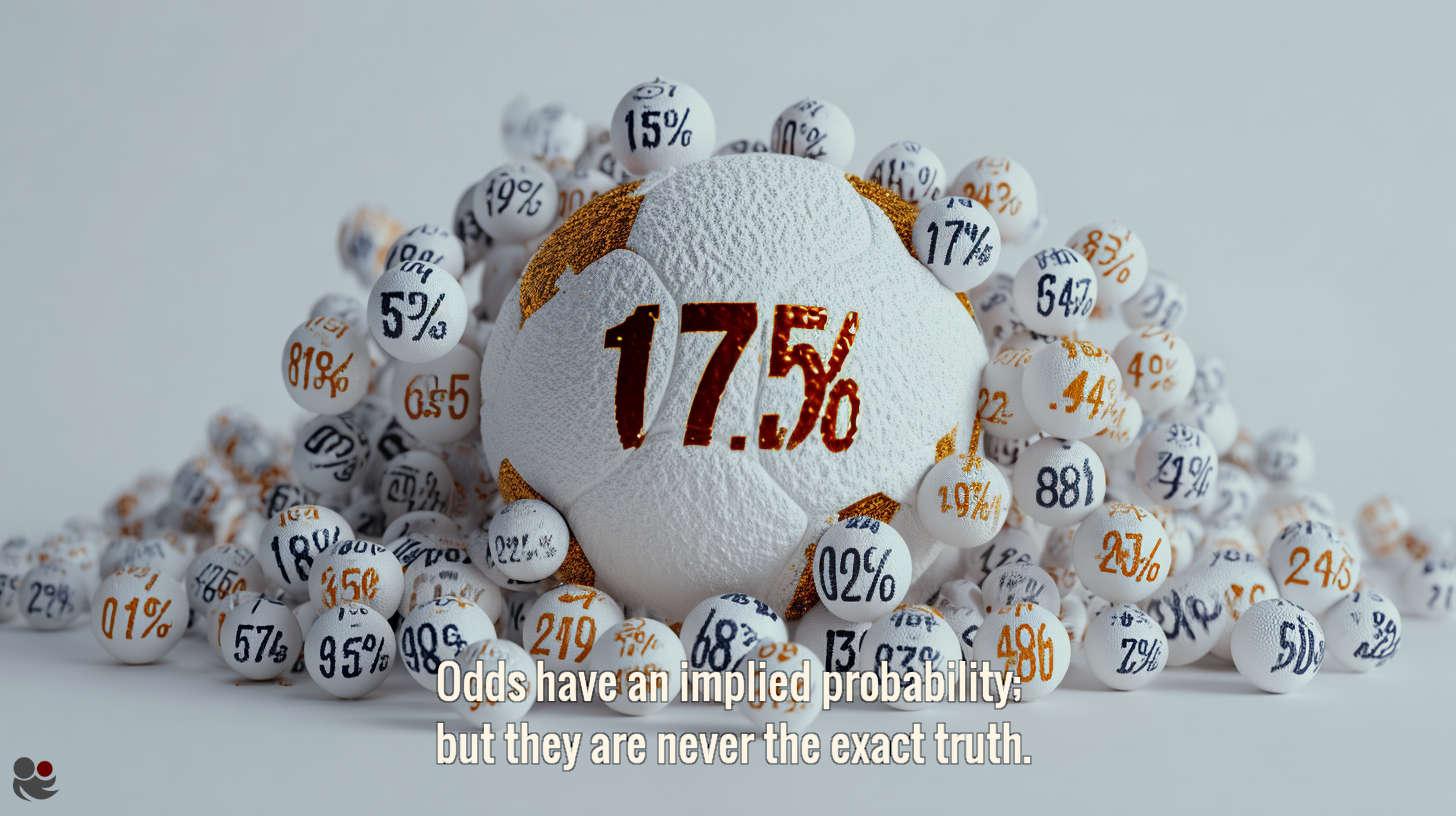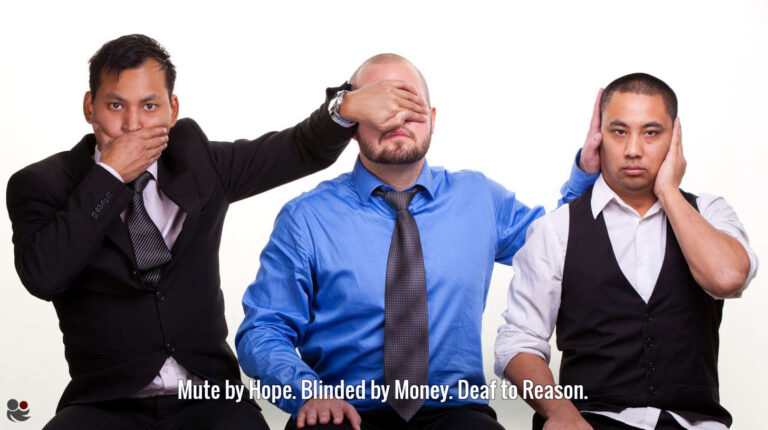
Every number hides a margin. Odds are the bookmaker’s way of making sure the house always wins.
What is a bet? What are odds? What is a stake? Hand on heart – can YOU confidently define any of them?
I wouldn’t be so sure. Are you?
Of the three, only ‘bet’ seems obviously straightforward, and I’m sure most of you would nod knowingly at that one.
Even ‘stake’ is easy enough to grasp – at least when it involves money. You put something down, and it’s either lost or returned with profit, depending on the outcome.
But ‘odds’? That’s where things usually get tricky. Odds are tied to market pricing, shifting probabilities, expectations, and all sorts of calculations. They look simple – but carry a lot more under the surface.
But if someone asks you: What is a bet? How to bet? What is a stake? Would you be able to answer that question?
If you had to explain it all in simple terms could you do it?
What is a Stake?
What are Odds?
Odds Are Prices, Not Probabilities
Bet, Odds, and Stake – Conclusion
What is a BET? ⤴️
Betting is all about risking something – usually a sum of money – against someone else’s money, based on the outcome of a future event, such as the result of a football match or a horse race.
One party takes (backs) one possible outcome, and the other party takes (lays) the opposite view. The winner takes the agreed reward (usually a financial profit), and the loser forfeits the wagered stake.
In today’s world, most people place bets through a bookmaker who offers set odds. But, fundamentally, it remains a contract between bettor and bookmaker: if the bettor is right, the bookmaker must pay out; if the bettor is wrong, the stake is lost.
There’s also another option: betting exchanges. These allow individuals to bet against each other, with the platform acting only as an intermediary. Here, one person offers a bet (the “layer”), and another accepts it (the “backer”). Again, the same rule applies – one wins, the other loses.
What does the term STAKE mean? ⤴️
The term ‘stake’ (or ‘wager’ in American English) is generally straightforward.
You bet with your friend on a game of pool, and stake £5 each. Whoever wins the game gets £5 from the other party, and whoever loses is £5 poorer.
In most forms of betting, the stake usually refers to a sum of money – something easily counted and valued.
A stake isn’t an expense until it’s been lost – it’s a promise (or guarantee) to pay the opposing party if the bet doesn’t go your way, usually agreed upon in advance. This distinction becomes especially important when calculating betting yield – explained in more detail here: Why Everyone Gets Betting Yield Wrong – And Why It Matters
The concept of stake becomes far more complicated when the wager involves property – like houses, cars, or, in some countries, even wives! In such cases, not only must you estimate the true probabilities to calculate fair odds, but you also have to translate the staked property into a monetary value.
Such bets are often lopsided and unfair – heavily favouring the person with stronger maths skills.
⚠️ Real-World Example: When Stakes Get Out of Hand
In 2013, a Ugandan Arsenal supporter named Henry Dhabasani staked his house on a bet that Arsenal would beat Manchester United.
His friend – a Man Utd fan – accepted the bet, staking his Toyota car and one of his wives.
The match ended 1-0 to United. Dhabasani lost the bet. As per the written agreement, witnessed by community leaders, his family was reportedly evicted from their home by celebrating United fans.
What are ODDS? ⤴️
The term ‘odds’ is often misunderstood and somewhat ambiguous.
It is used in two distinct ways:
- (A) Probability: The term “Odds” can indicate the chance of an event occurring. For example: “What are the odds of winning the lottery?”
- (B) Betting: In betting contexts, the term “odds” represents the ratio that determines how much a bettor wins if their wager is correct. For instance, “The odds are 2‑to‑1,” meaning the bettor would win two units for every one unit staked.
And here’s the problem: Many betting publications talk about the implied probability of odds without ever explaining the word “implied”, so bettors end up confusing betting odds with the real chances of an event happening.
Odds Formats Explained
A simpler way to grasp that odds are just a pay‑out ratio is to look at the different odds formats:
- British (fractional) odds show net profit only (e.g., 5/1).
- European (decimal) odds show profit plus your stake (e.g., 6.00).
- American (Moneyline) odds tell you how much you need to stake to win 100 units, or how much you’ll win from 100 (e.g., +500 or –200).
👉 Read more: Betting Odds Decoded: Fractional, Decimal & Moneyline Odds
If that weren’t enough confusion, bookmakers often adjust their odds to reflect public sentiment, not probability. They balance their books by shaping prices to guarantee a margin, regardless of the real likelihood of an outcome.
Here are two prime examples worth reading: How bookmakers adjust their odds to public opinion and How bookmakers tick.
⚠️ Key Insight:
In betting, odds are prices, not probabilities.

Or as a shorter version:
Odds can be converted into implied probabilities, yes – but they hardly represent true probabilities unless the market is perfectly efficient.
Bet, Odds, and Stake – Conclusion ⤴️
Here’s the most honest advice I can give:
Think of it this way: Most people wouldn’t go shopping without checking the price tags. Few would fill their trolley without comparing brands, calculating whether they can afford the items, or ensuring they’re getting good value.
Yet in betting, people do this all the time.
Odds are the prices of bets – not their chances. And if you don’t understand the price, how can you know whether the deal is worth it?
If you consistently place bets without checking whether the odds reflect realistic probabilities, you’re not betting – you’re donating.
Odds can be converted into implied probabilities, which you can compare to your own estimates based on data or intuition. This comparison – market price vs. real value – is the very heart of value betting.
If you want to win long-term, you must learn to:
- Read odds not just as numbers, but as price tags,
- Understand how they imply probabilities, and
- Compare those implied probabilities to your own judgments or true odds calculated by your own statistical models.
There is no alternative. Even the luckiest punter isn’t lucky forever.
👉 Fundamentals of Sports Betting Course: Betting on Over / Under ‘X’ Goals
💭 Final check:
Hand on heart again: Can YOU now confidently explain these three terms to a complete novice?
First published in January 2016,
this article was updated in July 2025 to improve clarity,
tighten the structure, and include examples.
The underlying message remains unchanged.







Thanks for sharing mate
I have recently been working on statistical analysis spreadsheet to help identify potential bets. I am new to this type of application but not the math. I am unfortunately a lot like your husband when it comes to football betting and as such find it difficult to follow my data, I have calculated that in the euro fixture between France and Romania the most likely outcome will be DNB Romania which seems, to my heart, impossible have I made a analytical error or am I on the right path???
Please help
Hi Joe, we have not calculated any games in the Euro, too many unknown variables, too many teams new in the competition this year.
However, generally speaking, if your calculations come to this result, and you say that you are good in maths, then you probably have calculated correctly, even if the heart questions the result.